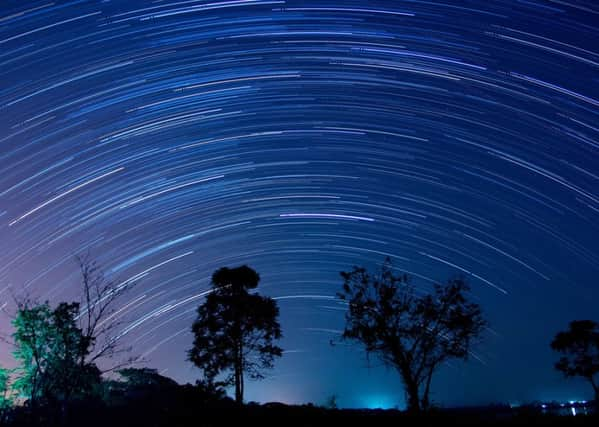Meteor shower to light up UK skies


The Earth will pass through the debris cloud from Apollo asteroid 3200 Phaethon until Thursday December 17, with the thickest concentrations of dust expected tomorrow (Monday), when around 100 meteors per hour can be expected.
Although the peak concentration will be at 1pm GMT on Monday, meteor rates should still be very high tonight and into tomorrow.
Advertisement
Hide AdAdvertisement
Hide AdThe timing couldn’t be better for stargazers - with a new moon in the sky there should be little light pollution from our nearest neighbour washing out the spectacular light show, although for optimum viewing, a spot away from the glare of streetlights is recommended.
Sky-watchers would also be advised to wrap up, with temperatures at the weekend dipping to around 7 degrees Celcius at night.
Peak darkness will be around midnight GMT and particles set to hit our atmosphere at around 22 miles (35 kilometres) per second will be visible as they burn up immediately due to air friction.
The Geminid shower is the first in an exciting month for amateur astronomers as a Christmas Eve visit from the International Space Station - and of course, Santa Claus - can also be expected. More on that later - keep watching the skies…